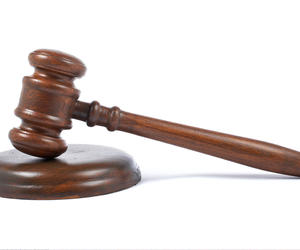British businessmen await Cuba's verdict as graft trial ends
- Submitted by: lena campos
- Society
- 06 / 02 / 2013

The two-day trial of two top executives of a British investment fund ended in Havana on Friday with a five judge panel expected to deliver its verdict within 10 days.
The sentences of two other foreigners tried a week ago have yet to be announced, as the government presses forward with an unprecedented crackdown on corruption.
In this week's trial on the communist-run island, Amado Fakhre, a Lebanese-born British citizen and chief executive officer of Coral Capital Group Ltd, faced various bribery charges related mainly to the fund's import business.
Chief Operating Officer Stephen Purvis, who headed various investment projects, faced lesser charges, such as operating outside the bounds of the fund's license, sources close to the case said on condition of anonymity.
The defendants' lawyers and British consular officials had no comment upon leaving the court, an old mansion, surrounded by an iron fence, in an outlying Havana neighborhood.
The trial was closed to the media.
There are only a few foreign investment funds in Cuba. Coral Capital said it invested some $75 million and had more than $1 billion of projects in the works.
The company was caught up in an investigation of Cuba's international trading sector, part of a broader crackdown on corruption by President Raul Castro after he replaced ailing brother Fidel in 2008.
Fakhre has been jailed since the company's offices were raided and closed in October 2011. Purvis was arrested and imprisoned in March 2012.
In September 2011, authorities shut down one of the most important Western trading companies in Cuba, Canada-based Tokmakjian Group, after doing the same in July to another Canadian trading firm, Tri-Star Caribbean.
The owner of Tri-Star Caribbean, Sarkis Yacoubian, originally from Armenia, was tried last week at the same court. He and an associate, Lebanese citizen Krikor Bayassalian, were charged with bribery, tax evasion and damaging the economy.
DOZENS ARRESTED
Dozens of Cuban officials and businessmen have reportedly been arrested, tried and sentenced in the anti-corruption sweep.
Cuba's state-run media has not yet reported the trials, nor mentioned the arrests and crackdown on foreign trade.
Castro established the comptroller general's office in 2009, even as he began implementing market-oriented economic reforms.
That step marked the start of the anti-corruption campaign that uncovered high-level graft in sectors ranging from the cigar, nickel and communications industries to food processing and civil aviation.
Coral Capital, registered in the British Virgin Islands in 1999, was best known in Cuba as the joint venture partner in Havana's upscale Saratoga Hotel and another hotel complex on the resort key of Cayo Coco. It had plans to build golf courses and related real estate developments near Havana.
The fund branched into trade financing and importing heavy equipment and other merchandise and this may have led to its problems, foreign business sources said.
The company represented various international brands in Cuba, among them Liebherr Earth Moving, Yamaha Motor Corporation and Peugeot Motorcycles, according to its website, now defunct.
Comments